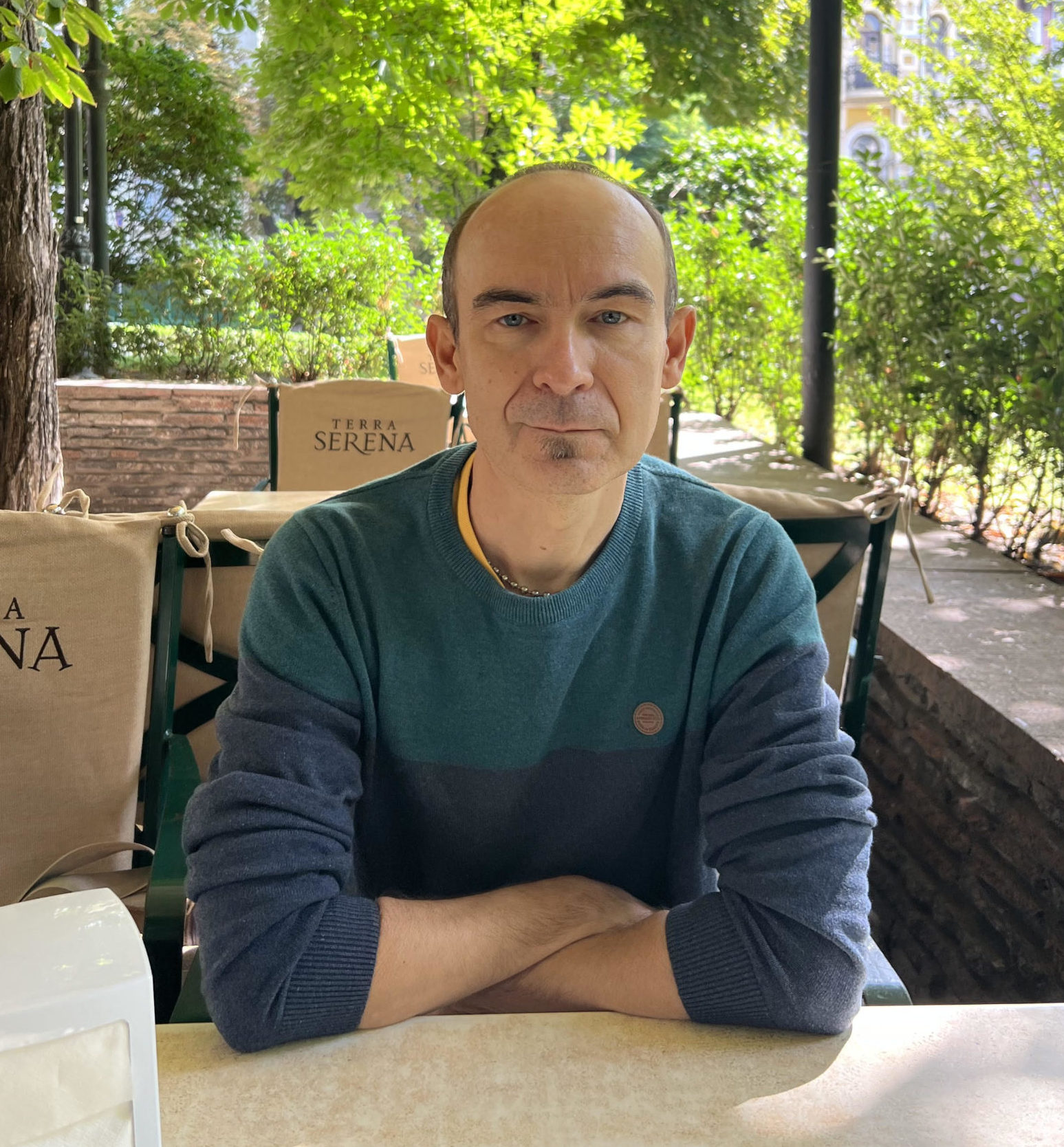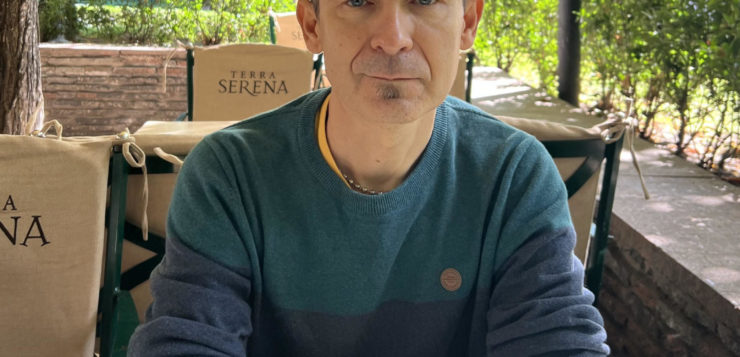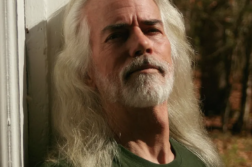
SINCE RUSSIA’S WAR of aggression began on 24 February 2022, the lives of everyday Ukrainians have fundamentally changed. Many people in Ukraine’s lgbtq community are fighting in the military to repel Russian forces and liberate their homeland. Andrii Kravchuk is a Ukrainian lgbtq activist, one of the founders of the Nash Mir (Our World) Gay and Lesbian Centre, Ukraine’s leading lgbtq advocacy center, and is currently working to support the country’s lgbtq community, which is under siege.
We met at the open-air café next to Termen’s Fountain in Kyiv and discussed the current situation for lgbtq people living in Ukraine, how the war has altered the lives of Ukrainians, and the likelihood that same-sex marriage will become a reality in Ukraine after the war ends. The interview, which was conducted in English, has been edited for length and clarity.
Finbarr Toesland: What is the Nash Mir Gay and Lesbian Centre, and how did you operate before the Russian invasion?
Andrii Kravchuk: The Nash Mir Centre is one of the oldest Ukrainian lgbtq organizations. We started 25 years ago. For a year after we began our activities, we fought with our local Department of Justice because they didn’t want to register us as an openly lgbtq organization.
When I talk about “us,” it was just some friends who started the center as a group of young gay guys. It was during the first years after Ukrainian independence, and we saw opportunities to improve society for lgbtq people. Since then, we have set up a monitoring network for anti-lgbtq violence, discrimination or other violations of rights in Ukraine.
Until 2014, we never cooperated with the Ukrainian government. They rejected all of our proposals and did not want to speak to us. After a better person became president of Ukraine, the situation changed. We are currently cooperating with our government in some areas. For instance, they invited us to work on some important policies around civil rights. Even in 2015, when the first lgbtq action plan was adopted by our government, it was absolutely unexpected for us. They included all our proposals. Not all became law, around one-third did, but it was still very good.
Before the war, we had a series of trainings with local police forces around sexual orientation and gender identity. They were quite effective and well-received in most cases, but we couldn’t manage to finish a session in Vinnitsa. Those meetings were disrupted by local anti-lgbtq organizations, and even the police could not protect themselves from this attack.
Lviv was the only city where we tried to organize such a meeting with police, but it failed, because we were of no interest to the local police. Lviv is a major center for far-right nationalism, and they see lgbtq people as enemies, not just on a political basis but also on a national basis.
Finbarr Toesland is a UK-based freelance journalist who has written for The Times, The Telegraph, BBC, Reuters, and other outlets.






